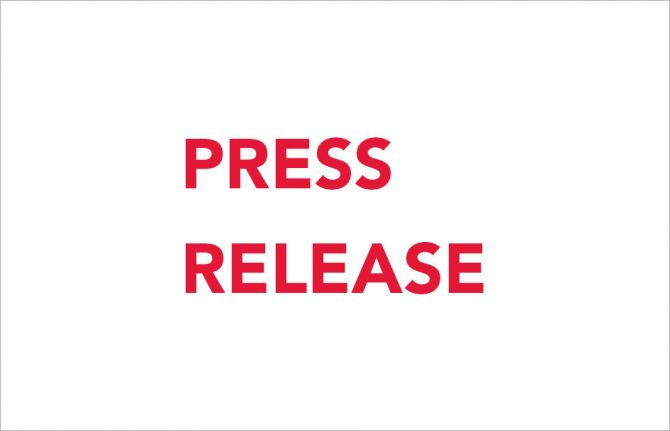

Press Release
UNAIDS reports on the steps taken in building a safe, equal and empowering workplace
16 June 2022 16 June 2022GENEVA, 16 June 2022—In advance of the meeting of the UNAIDS Programme Coordinating Board taking place 21-24 June, UNAIDS is reporting publicly on the steps taken to date to strengthen accountability, counter harassment and build a safe, equal and empowering workplace.
Human rights, equality and dignity are at the heart of UNAIDS mission and are fundamental to its operations. In 2018, an independent expert panel underscored the need to address the organizational systems and culture of the time that had failed to tackle unacceptable behaviour of some employees. UNAIDS put in motion a Management Action Plan and has continued to work to ensure that sexual harassment and all other forms of abusive conduct are addressed, and that victims are provided with adequate support and effective complaint handling mechanisms.
“Ensuring that UNAIDS is a safe, equal and empowering workplace has been my top priority from my arrival,” said Executive Director Winnie Byanyima. “The independent expert panel report of 2018 showed that UNAIDS systems, culture and leadership had got it wrong. I have been determined that past failings are addressed by delivering justice in cases and by continuing to transform our systems and culture to ensure that UNAIDS reflects the values we espouse.”
The process of transformation of systems and culture to ensure a safe, equal and empowering workplace has included: strengthening the UNAIDS Secretariat’s capacities and systems for accountability; ensuring the organization’s duty of care responsibilities to its staff are being met; and advancing feminist and anti-racist leadership principles in all UNAIDS work.
The set of actions that have been taken by UNAIDS include the following:
- The Culture Transformation Process, now in its third year, which has facilitated development of Feminist Principles for UNAIDS and an Anti-Racist and Intersectional Feminist organizational development framework. The positive change brought about through these actions has been recognised by staff, the Programme Coordinating Board, and by UNAIDS international partners.
- The launch of a multi-year Respect Campaign to enhance awareness for prevention and early action to ensure zero tolerance against abusive conduct.
- The establishment of a staff well-being support service with a full-time counsellor for staff wellbeing and mental health and an externally sourced global service provider .
- The launch of the first benchmarked Global Staff Survey at the Secretariat in more than a decade, measuring UNAIDS against peer organizations and gathering real-time data about issues staff are facing and how staff experience the organization. Every unit develops and implements a follow-up action plan.
- The strengthening of the independence of the UNAIDS ethics function, and the establishment of an Independent External Oversight Advisory Committee of the Board.
- The introduction of a strengthened and expanded policy on preventing and addressing harassment, sexual harassment and abuse, discrimination and other forms of abusive conduct, drawing on best practice in UN and other entities, and accompanied by mandatory training for all staff.
- The strengthening of the investigation function and ensuring that measures are taken to protect victims, whistleblowers and witnesses. UNAIDS signed a new Memorandum of Understanding with the WHO/IOS investigation service, which governs all UNAIDS investigations and includes provisions to ensure that investigations are carried out expeditiously.
- The placement of the Integrity Hotline on the UNAIDS website, including a QR code option, to facilitate complaints to be made by anyone using the online platform, email or phone.
- Enhancing transparency by presenting an annual report on disciplinary and other corrective action taken. The report contains case statistics, case summaries and information on specific actions taken.
These steps forward are not the end of the journey. Further action to strengthen accountability and equality in systems and culture continues.
“Whilst we are moving in the right direction, we will not let up,” said Executive Director Winnie Byanyima, “We still have more to do. We will continue to take necessary measures to ensure a culture of zero tolerance of sexual harassment and abuse, and other forms of misconduct, such as bullying, racism and discrimination across all UNAIDS offices. Justice is what drives me as the leader of UNAIDS, and it is what drives the mission of UNAIDS. The MeToo and Black Lives Matter movements have shown the deep-seated inequalities and injustices within institutions. UNAIDS Global AIDS Strategy focuses on ending inequalities to end AIDS. To do this effectively, we will tackle head on the inequalities and injustices that exist within UNAIDS and the UN system. We will further strengthen our work both on organisational systems and on culture, to ensure safety, equality and empowerment for all.”
UNAIDS
The Joint United Nations Programme on HIV/AIDS (UNAIDS) leads and inspires the world to achieve its shared vision of zero new HIV infections, zero discrimination and zero AIDS-related deaths. UNAIDS unites the efforts of 11 UN organizations—UNHCR, UNICEF, WFP, UNDP, UNFPA, UNODC, UN Women, ILO, UNESCO, WHO and the World Bank—and works closely with global and national partners towards ending the AIDS epidemic by 2030 as part of the Sustainable Development Goals. Learn more at unaids.org and connect with us on Facebook, Twitter, Instagram and YouTube.
